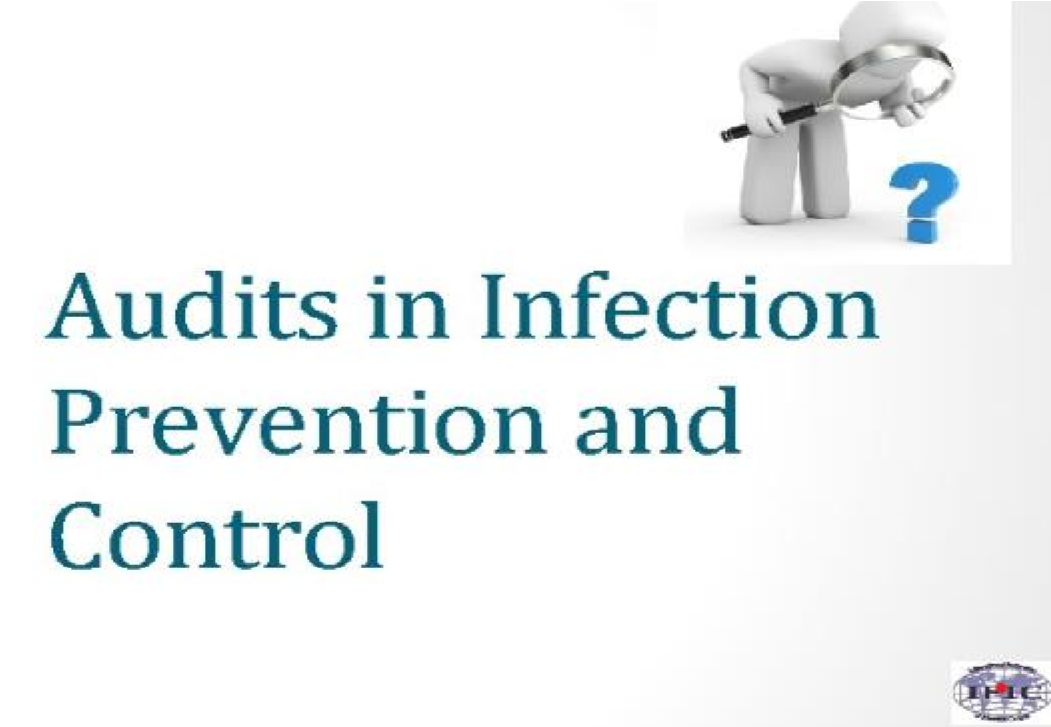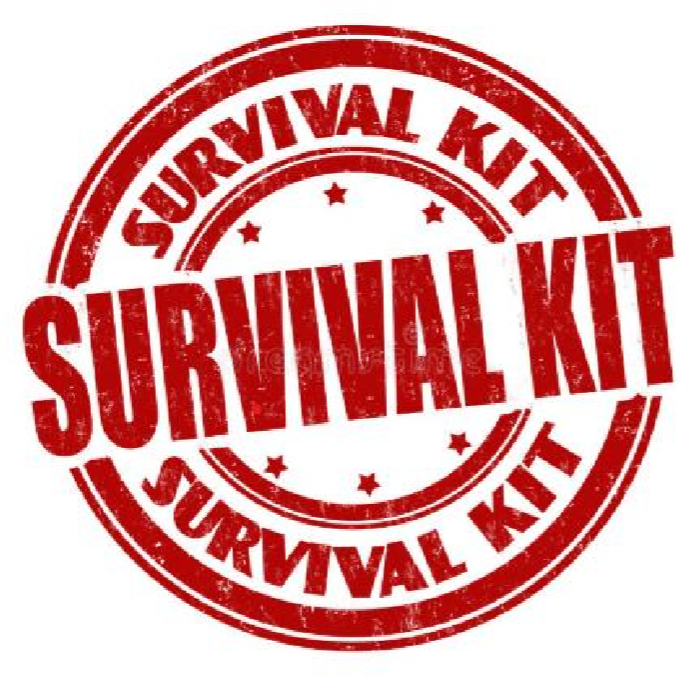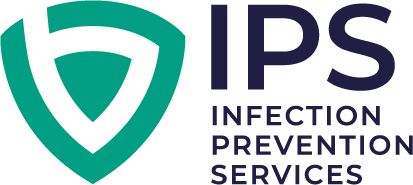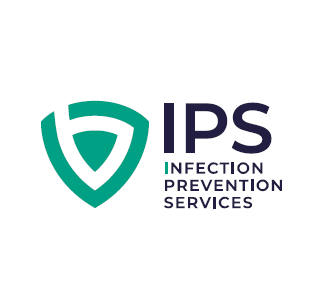Jun 20
Why We Created the IPC Accreditation Survival Kit
And Why Your Aged Care Facility Needs It
When the new Aged Care Act (2024) comes into effect, aligned with the Strengthened Aged Care Quality Standards from November 1, 2025, these new standards are expected to reshape compliance across Australia. Infection Prevention and Control (IPC) is rapidly emerging as one of the most intensely scrutinised elements of aged care accreditation. This isn't just a minor adjustment, it's a significant shift in direction that requires a more proactive and integrated approach to IPC in the aged care facility.
However, despite their best intentions and dedication to resident well-being, many high-performing aged care services nationwide are finding it increasingly challenging to remain "audit-ready." This struggle isn't because of a lack of commitment to IPC or a disregard for its importance. Instead, it's because the "compliance game" itself has evolved, requiring much more than traditional methods.
At Infection Prevention Solutions (IPS), we have observed this growing gap between intent and execution. Recognising the increased focus on IPC and the new demands of the strengthened standards, we felt compelled to act. That's why we meticulously developed the IPC Accreditation Survival Kit – a comprehensive, practical resource designed specifically to help aged care providers navigate these complex new requirements with confidence and competence.
However, despite their best intentions and dedication to resident well-being, many high-performing aged care services nationwide are finding it increasingly challenging to remain "audit-ready." This struggle isn't because of a lack of commitment to IPC or a disregard for its importance. Instead, it's because the "compliance game" itself has evolved, requiring much more than traditional methods.
At Infection Prevention Solutions (IPS), we have observed this growing gap between intent and execution. Recognising the increased focus on IPC and the new demands of the strengthened standards, we felt compelled to act. That's why we meticulously developed the IPC Accreditation Survival Kit – a comprehensive, practical resource designed specifically to help aged care providers navigate these complex new requirements with confidence and competence.
The Problem: Policy ≠ Practice
One of the most pervasive and, frankly, dangerous myths circulating within the aged care IPC landscape is the notion that:
"We have compliant policies. We will be fine in an audit."
This belief, while comforting, is a significant misstep. The reality is that the Aged Care Quality and Safety Commission (ACQSC) assessors are no longer completely satisfied with static, binder-bound policies, however well-written they may be. Their focus has shifted dramatically. When they arrive for an audit, they are keenly looking to see:
"We have compliant policies. We will be fine in an audit."
This belief, while comforting, is a significant misstep. The reality is that the Aged Care Quality and Safety Commission (ACQSC) assessors are no longer completely satisfied with static, binder-bound policies, however well-written they may be. Their focus has shifted dramatically. When they arrive for an audit, they are keenly looking to see:
- Current, version-controlled evidence: Is your documentation up-to-date, easily accessible, and does it clearly show the evolution and continuous improvement of your IPC practices? They want to see that your IPC systems are dynamic, not stagnant.
- Continuous improvement activity: Are you actively identifying areas for improvement in your IPC practices? Are you documenting these efforts, the actions taken, and the positive outcomes achieved? Auditors want to see your commitment to ongoing refinement and adaptation.
- Staff understanding and competence: Vitally, they want to observe and verify that your staff not only know the content of the policies but can competently and consistently apply them in their daily practice. This means hands-on demonstrations and clear articulation of procedures.
- Integration of IPC across governance and clinical systems: IPC can no longer operate in a silo. Assessors are looking for demonstrable evidence that IPC principles are seamlessly woven into your organisation's overall governance framework and integrated within all clinical care processes.
In essence, ACQSC wants to see a living, breathing IPC system that is embedded in your organisation's culture and operations, rather than merely a set of documents gathering dust on a shelf.

How We Know What Fails
Our understanding of what genuinely leads to IPC non-compliance is not theoretical; it can be observed in the depths of aged care audits and real-world challenges. At IPS, we have systematically reviewed hundreds of aged care audit reports – both publicly available reports and confidential internal assessments. This plunge into aged care audit reports has given us unparalleled insights into the recurring patterns of failure.
Beyond audit reports, we continuously monitor and analyse critical sector-wide data and feedback, including:
Beyond audit reports, we continuously monitor and analyse critical sector-wide data and feedback, including:
- Aged Care National Antimicrobial Prescribing Survey (AC NAPS) results: These surveys offer vital insights into antimicrobial stewardship practices, a critical component of IPC, and often highlight systemic gaps in practices.
- Sector-wide feedback from IPC Leads and governance teams: We maintain close contact with frontline IPC professionals and governance leaders, gathering their invaluable experiences and challenges directly. This real-time feedback helps us understand emerging issues and practical pain points.
- Changes in ACQSC audit focus, based on the Strengthened Standards: We meticulously track and interpret every nuance of the evolving strengthened standards. These consolidate 8 standards into 7, with new or enhanced requirements for clinical care, food and nutrition, dementia care, and most significantly, provider governance and partnership with older people. This allows us to anticipate shifts in audit priorities and can then prepare providers accordingly.
Through this comprehensive monitoring, we've consistently identified the top causes of IPC non-compliance. These common pitfalls often include:
- No evidence of continuous improvement: Services might be improving, but if it's not documented and tracked, auditors are not able to see it.
- Missing or incomplete cleaning audit records: Demonstrating a robust cleaning and environmental hygiene program requires meticulous record-keeping. Gaps here are immediate red flags to an auditor.
- Poor or outdated outbreak management evidence: The ability to effectively prevent, manage, and recover from outbreaks is paramount. Outdated plans or insufficient evidence of drills and reviews are major concerns.
- Antimicrobial Stewardship (AMS) activities not documented or linked to governance: AMS is a core portion of IPC practice. A lack of clear documentation showing AMS activities and their integration into the overall governance structure is a common area of non-compliance.
- Staff unable to articulate IPC practices during spot checks: This is arguably one of the most critical failures. If staff cannot confidently explain what they do and why they do it when questioned by an assessor, it immediately signals a gap in education, training, understanding, or consistent practice.

Why We Created the Survival Kit
With this critical understanding of audit failures and the significant changes brought by the Strengthened Aged Care Quality Standards, we at IPS recognised an urgent need for practical, actionable resources. We built the IPC Accreditation Survival Kit specifically to give aged care providers a solid, practical starting point, equipping them with the tools they need to not just prepare for, but confidently pass their IPC accreditation audits.
Here’s how the Survival Kit tackles the most common challenges:
Here’s how the Survival Kit tackles the most common challenges:
- Audit-ready checklist: This isn't just a generic list. It's a meticulously crafted checklist, directly aligned with the specific expectations of the ACQSC and the evolving focus of the Strengthened Standards. It breaks down complex requirements into digestible, actionable steps, ensuring every essential area is covered.
- Evidence logs: One of the biggest challenges is knowing what evidence to collect and how to present it. Our evidence logs are structured templates designed to help you track and collate precisely what auditors want to see, making evidence retrieval seamless and stress-free. This system ensures your vital information is organised and readily available.
- Documentation prep flow: Your governance story needs to be clear, credible, and compelling. This practical flow provides a step-by-step guide to prepare your documentation, ensuring it tells a cohesive and compliant narrative about your IPC systems and continuous improvement efforts. It helps you connect the dots for the assessors.
- Staff briefing card: In an unannounced spot check, your staff are truly your front line. This concise, easy-to-understand briefing card empowers your team by providing them with key IPC messages and practical reminders. It helps them articulate their practices confidently and consistently when questioned by an assessor, demonstrating their competence and your organisation's commitment to IPC.
This isn't theoretical advice. These are the exact tools and approaches we see:
- Working effectively for clients who successfully pass their audits, often with glowing feedback.
- Consistently missing when aged care facilities unfortunately fail their audits, highlighting the critical gaps this kit aims to fill.

The IPC Accreditation Survival Kit is more than just a document; it's a strategic asset for your facility's compliance journey.
Final Thought:
In the evolving landscape of aged care, simply having a policy, no matter how comprehensive, is no longer enough to guarantee compliance. Policy is undoubtedly important – it lays the foundation.
However, true, sustainable IPC compliance is achieved when you combine:
Policy + Demonstrable Evidence + Robust Governance Integration + Competent Staff.
The IPC Accreditation Survival Kit is engineered to help you build and strengthen all four of these essential pillars, providing a holistic and practical pathway to achieving and maintaining exemplary IPC standards in your aged care facility. It's your essential partner in navigating the strengthened standards and ensuring the safety and well-being of your residents.
For more information on this blog and those on other subjects, visit the IPS HUB or contact our friendly staff at support@infectioncontrol.care
Take advantage of our expertise in IPC. See the HUB for policies, resources and courses relating to this very important subject. Ask EVE for a quick answer to your question.
Alternatively, ask EVE, our multilingual bot!
Follow us on Facebook and LinkedIn, and be sure to like and share
In the evolving landscape of aged care, simply having a policy, no matter how comprehensive, is no longer enough to guarantee compliance. Policy is undoubtedly important – it lays the foundation.
However, true, sustainable IPC compliance is achieved when you combine:
Policy + Demonstrable Evidence + Robust Governance Integration + Competent Staff.
The IPC Accreditation Survival Kit is engineered to help you build and strengthen all four of these essential pillars, providing a holistic and practical pathway to achieving and maintaining exemplary IPC standards in your aged care facility. It's your essential partner in navigating the strengthened standards and ensuring the safety and well-being of your residents.
For more information on this blog and those on other subjects, visit the IPS HUB or contact our friendly staff at support@infectioncontrol.care
Take advantage of our expertise in IPC. See the HUB for policies, resources and courses relating to this very important subject. Ask EVE for a quick answer to your question.
Alternatively, ask EVE, our multilingual bot!
Follow us on Facebook and LinkedIn, and be sure to like and share
Lyndon Forrest
Managing Director | CEO
I am a passionate and visionary leader who has been working in the field of infection prevention and control in aged care for almost 30 years. I am one of the co-founders and the current Managing Director and CEO of Bug Control New Zealand and Australia, the premium provider of infection prevention and control services in aged care. I lead a team that is driven by a common purpose: to help aged care leaders and staff protect their residents from infections and create a healthier future for them.
I am building a business that focuses on our clients and solving their problems. We are focused on building a world-class service in aged care. We focus on being better, not bigger, which means anything we do is for our clients.
I am a passionate and visionary leader who has been working in the field of infection prevention and control in aged care for almost 30 years. I am one of the co-founders and the current Managing Director and CEO of Bug Control New Zealand and Australia, the premium provider of infection prevention and control services in aged care. I lead a team that is driven by a common purpose: to help aged care leaders and staff protect their residents from infections and create a healthier future for them.
I am building a business that focuses on our clients and solving their problems. We are focused on building a world-class service in aged care. We focus on being better, not bigger, which means anything we do is for our clients.
Erica Leadley
Manager, Marketing and Sales
Erica Leadley is a dedicated professional with a rich background in agriculture and nutrient management. Growing up on her family's farm in Mid Canterbury, she developed a deep passion for farming. She currently resides on her partner's arable property in South Canterbury.
In 2017, Erica joined the Farm Sustainability team, focusing on nutrient management and environmental stewardship. In February 2024, she became the Manager of Marketing and Sales at Bug Control New Zealand - Infection Prevention Services, where her passion now includes improving infection prevention outcomes.
Outside of work, Erica loves cooking and traveling, often combining her culinary interests with her explorations in Italy and Vietnam. She enjoys entertaining family and friends and remains actively involved in farm activities, especially during harvest season.
Erica Leadley is a dedicated professional with a rich background in agriculture and nutrient management. Growing up on her family's farm in Mid Canterbury, she developed a deep passion for farming. She currently resides on her partner's arable property in South Canterbury.
In 2017, Erica joined the Farm Sustainability team, focusing on nutrient management and environmental stewardship. In February 2024, she became the Manager of Marketing and Sales at Bug Control New Zealand - Infection Prevention Services, where her passion now includes improving infection prevention outcomes.
Outside of work, Erica loves cooking and traveling, often combining her culinary interests with her explorations in Italy and Vietnam. She enjoys entertaining family and friends and remains actively involved in farm activities, especially during harvest season.
Toni Sherriff
Clinical Nurse Specialist
Toni is a Registered Nurse with extensive experience in Infection Prevention and Control. Her career began as a kitchen hand and caregiver in Aged Care facilities, followed by earning a Bachelor of Nursing.
Toni has significant experience, having worked in Brisbane’s Infectious Diseases ward before returning home to New Zealand, where she continued her career as a Clinical Nurse Specialist in Infection Prevention and Control within Te Whatu Ora (Health NZ).
Toni brings her expertise and dedication to our team, which is instrumental in providing top-tier infection prevention solutions to our clients.
Toni is a Registered Nurse with extensive experience in Infection Prevention and Control. Her career began as a kitchen hand and caregiver in Aged Care facilities, followed by earning a Bachelor of Nursing.
Toni has significant experience, having worked in Brisbane’s Infectious Diseases ward before returning home to New Zealand, where she continued her career as a Clinical Nurse Specialist in Infection Prevention and Control within Te Whatu Ora (Health NZ).
Toni brings her expertise and dedication to our team, which is instrumental in providing top-tier infection prevention solutions to our clients.
Julie Hadfield
Accounts & Payroll
Julie is experienced in Accounts & Payroll Administration & after a long career in both the Financial & Local Government Sectors, is now working with our team. Julie brings her strong time management & organisational skills to our team, which is important to keep the company running in the background to enable the rest of our team to provide top notch service to all of our clients.
Julie is experienced in Accounts & Payroll Administration & after a long career in both the Financial & Local Government Sectors, is now working with our team. Julie brings her strong time management & organisational skills to our team, which is important to keep the company running in the background to enable the rest of our team to provide top notch service to all of our clients.
Andrea Murray
Content Editor
I attended Otago University in NZ and graduated as a Dental Surgeon. After 40 years in the profession, I retired in 2022. Infection prevention knowledge was part of everyday practice, dealing with sterilisation, hand hygiene, and cleaning.
Before retiring, I began doing some editing and proofreading for Bug Control as I am interested in the subject and in the English language. During the COVID-19 lockdown, I attended the ACIPC course "Introduction to Infection Prevention and Control", which increased my interest in the subject. I now work part-time as the Content Editor for the company.
I attended Otago University in NZ and graduated as a Dental Surgeon. After 40 years in the profession, I retired in 2022. Infection prevention knowledge was part of everyday practice, dealing with sterilisation, hand hygiene, and cleaning.
Before retiring, I began doing some editing and proofreading for Bug Control as I am interested in the subject and in the English language. During the COVID-19 lockdown, I attended the ACIPC course "Introduction to Infection Prevention and Control", which increased my interest in the subject. I now work part-time as the Content Editor for the company.
Personally, I lived in the UK for 10 years. My two children were born in Scotland, and now both are living in Europe, one in Amsterdam, Netherlands, and the other in Edinburgh, Scotland. I live close to Fairlie on the South Island of NZ, a beautiful part of the country, and I love being out of the city.
Princess
Customer Support
Princess began her career as a dedicated Customer Service Representative, honing her communication and problem-solving skills. She later transitioned into a Literary Specialist role, where she developed a keen eye for detail. Her journey then led her to a Sales Specialist position, where she excelled in client relations.
Now, as a Customer Support professional in Infection Prevention Services. Princess focuses on ensuring customer satisfaction, building loyalty, and enhancing the overall customer journey.
Princess began her career as a dedicated Customer Service Representative, honing her communication and problem-solving skills. She later transitioned into a Literary Specialist role, where she developed a keen eye for detail. Her journey then led her to a Sales Specialist position, where she excelled in client relations.
Now, as a Customer Support professional in Infection Prevention Services. Princess focuses on ensuring customer satisfaction, building loyalty, and enhancing the overall customer journey.
Dianne Newey
Senior Infection Prevention and Control Consultant
With over 35 years of experience as a Registered Nurse, I'm now applying all my experience and skills as a Senior Infection Prevention and Control Consultant with Bug Control Infection Prevention Advisory Services.
This is through IP&C education, IP&C environmental audits and reports, IP&C policy and procedure review and development and consultancy on infection prevention and control issues. When I’m not working, I spend time with my family and in my garden, where I grow all my own veggies.
With over 35 years of experience as a Registered Nurse, I'm now applying all my experience and skills as a Senior Infection Prevention and Control Consultant with Bug Control Infection Prevention Advisory Services.
In my role, I promote Infection Prevention and Control, to RACF's and disability support services.
This is through IP&C education, IP&C environmental audits and reports, IP&C policy and procedure review and development and consultancy on infection prevention and control issues. When I’m not working, I spend time with my family and in my garden, where I grow all my own veggies.
Caoimhe (Keva) Stewart
Manager of Customer Service
Caoimhe is the Manager of Customer Service at Bug Control | Infection Prevention Services, where she ensures that learners have a seamless and supportive experience. With her previous experience as a Registered Nurse in both the UK and Australia, Caoimhe brings a deep understanding of healthcare to her role. Before joining Bug Control IPS Services, she worked in a variety of nursing settings, including Occupational Health, Palliative Care, and Community Nursing, providing her with the ability to empathise with learners and understand the challenges they face.
Caoimhe is the Manager of Customer Service at Bug Control | Infection Prevention Services, where she ensures that learners have a seamless and supportive experience. With her previous experience as a Registered Nurse in both the UK and Australia, Caoimhe brings a deep understanding of healthcare to her role. Before joining Bug Control IPS Services, she worked in a variety of nursing settings, including Occupational Health, Palliative Care, and Community Nursing, providing her with the ability to empathise with learners and understand the challenges they face.
Her move from nursing to customer service was driven by her passion for helping others, not just in clinical settings but also in ensuring that people have access to the resources and support they need. Now, Caoimhe applies her problem-solving skills, attention to detail, and communication expertise to her role, helping to create a positive and effective learning environment for all students.
Outside of work, Caoimhe enjoys travelling, staying active, and catching up with friends on the weekends. Whether in healthcare or customer service, she’s dedicated to making a meaningful difference and supporting people in their personal and professional growth.

